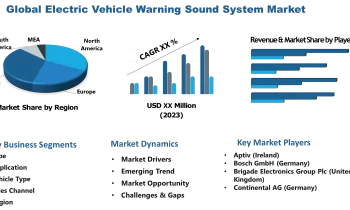After experiencing its second consecutive quarter of declining growth, many investors and economists concluded that the United States had entered a recession. However, the White House argued that the United States was not, in fact, in recession. Despite the White House’s assertions, there are plenty of signs that we’ve aleady entered a recession.

1. We’ve Crossed the Rubicon
Traditionally, we have used economic contraction (as measured by a shrinking gross domestic product, or GDP), over two consecutive quarters, as a crude measure of when we are in a recession. This basic definition of a recession is used not just in the United States but in countries such as Australia and the United Kingdom. In the first quarter of the year, the GDP declined by an annual rate of 1.6%, and in the second quarter, the GDP fell by 0.9%, according to data from the Bureau of Economic Activity.
A recession is officially only declared when the National Bureau of Economic Research (NBER) says there is a recession. This is because the more technical definition of a recession, as laid out by the NBER, is that it is a period of more than a few months when there is a decline in “aggregate economic activity”, as seen through a general decline in spending. For the NBER, GDP is a crude measure of economic activity, so it takes them a very long time to analyze the economy and conclude. Because of the work that goes into the NBER concluding that the United States is in a recession, it can take several months or even a year for them to decide. For investors and business leaders, that is simply too late. For instance, in the wake of the Great Recession of 2008, it took the NBER Business Cycle Dating Committee more than a year to conclude that the United States was in a recession. In fact, according to a survey by the Financial Times,70% of academic economists believe that the NBER will declare a recession in 2023.
2. Business Sentiment is Negative
According to a Stifel survey of corporate executives, business owners, and investors, 97% of those surveyed believe that we are either already in recession or within a year of recession, with 46% believing that we will be in recession this year; 33% believe a recession will come next year, and 18% believing that the recession has already begun. This near-universal belief is driven by what these leaders see in their company numbers. They are seeing softening demand for their products and are, in turn, probably reducing their spending or starting to think about that.
3. Consumer Confidence is Down
Not only are business leaders bearish about the economy, but consumers are too. Consumer confidence, as measured by the US Conference Board’s Consumer Confidence Survey. In July, consumer confidence fell for a third consecutive month to its lowest since February 2021.
Weakening consumer confidence will likely cause consumers to reduce spending, further weakening economic growth. With rising inflation, consumers will likely conclude that they need to save more money in preparation for the worst.
4. Small Business Confidence is Down
In June, the National Federation of Independent Business (NFIB) Small Business Optimism Index fell to its lowest level since January 2013, with 34% of business owners saying that inflation was their biggest concern.
5. Construction Spending is Down
Construction spending is declining, as shown by the U.S. Census Bureau’s latest data. Construction spending fell from $1,781.9 billion in May to $1,762.3 billion in June, a fall of some 1%. This reflects a weakening demand for new homes and commercial spaces.
6. Home Price Growth is Down
Economist Edward E. Leamer famously said, “Housing is the business cycle”. Housing has played a crucial role in the economy for decades, given the link between housing and household wealth.
Mortgage monitoring services firm, Black Knight, has referred to the decline in home price growth as a “record-setting slowdown”, as annual home price growth fell by 2% in June, the most significant decline since the early 70s.
Meanwhile, Redfin and Compass have started layoffs, with more layoffs across the industry likely.
7. Earnings Are Falling
Financial services firm, New Constructs, believes that Wall Street earnings are overstated, with 70% of the S&P 500 companies having overstated earnings. Not only that, but many Wall Street firms and banks have already reported declining earnings, with hiring freezes and layoffs likely.
8. The Tech Industry Is Struggling
The tech industry has been the poster industry of the over-decade-long boom we have enjoyed. With rising interest rates, tech firms find it harder to raise capital, and many have already been forced to lay off workers.
9. Services Industry Is Slowing
Finally, the services industry is also slowing, with services employment declining to a two-year low. The Institute for Supply Management’s (ISM) services index fell from 55.9 in May to 55.3 in June. This was the third straight decline in the index.
A Recession is Coming
All of these data points point to one thing: a recession is coming. It may not be this year or next, but it is coming. The only question is when the NBER will declare it. We believe that the NBER will declare a recession in 2023.



